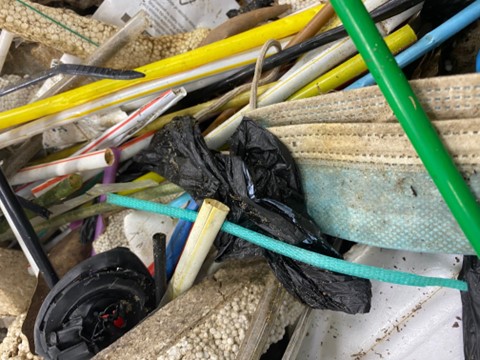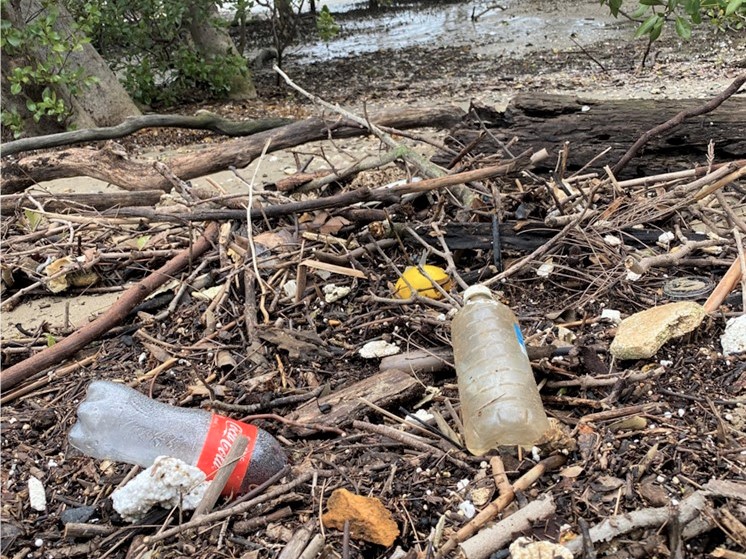Marine debris research and management program
 Marine debris poses a major threat to the health of our waterways and coastal areas in NSW. Photo Credit: Edwina Foulsham NSW DCCEEW
Marine debris poses a major threat to the health of our waterways and coastal areas in NSW. Photo Credit: Edwina Foulsham NSW DCCEEW
Overview
Human created marine debris poses a significant threat to the health of our waterways and coastal areas.
Also known as marine litter, marine debris is human-created waste found in our coastal waterways and oceans.
Generally, around 90% of visible marine debris is discarded plastic.
This plastic waste can range from microscopic fragments (microplastics) to larger objects like fishing nets or building materials.
Common debris items include plastic bags, food packaging, cigarette butts and discarded fishing equipment.
Marine debris severely affects marine wildlife and ecological communities. Turtles, whales and fish can ingest it, become entangled or smothered. Marine debris disrupts marine habitats.
Our enjoyment of the marine environment is affected by seeing marine debris and its harm to flora and fauna.
What are we doing?
Our scientists and collaborators are working on a strategic program to tackle the threats of marine debris in NSW.
This program will use a state-wide assessment to prioritise debris, map risks, and suggest future actions.
View the key items of marine debris.
You can read the Marine Debris Threat and Risk Assessment Summary Report here.
A supplementary report and literature review are also available.
- Marine Debris Threat and Risk Assessment supplementary material report
- Marine Debris Threat and Risk Assessment literature review summary
The program's goal is to decrease the dangers posed by marine debris. It focuses on identifying the most harmful debris items, exploring knowledge gaps, and evaluating the effectiveness of various management options.
Various strategic actions will guide ongoing initiatives to reduce the impact of marine debris in NSW. These actions will involve and benefit different levels and stakeholders, including governments, management bodies, and the community.
The aim is to empower stakeholders with information and resources, facilitate decision-making, optimise future interventions, and minimise harm from marine debris in NSW.
You can find out more about this project on the NSW Department of Climate Change, Energy, the Environment and Water (NSW DCCEEW) website.
Lead agency
NSW Department of Climate Change, Energy, the Environment and Water (NSW DCCEEW)
Partners
NSW Environment Protection Authority
Project updates
Marine debris webinar now live!
26 April 2023
